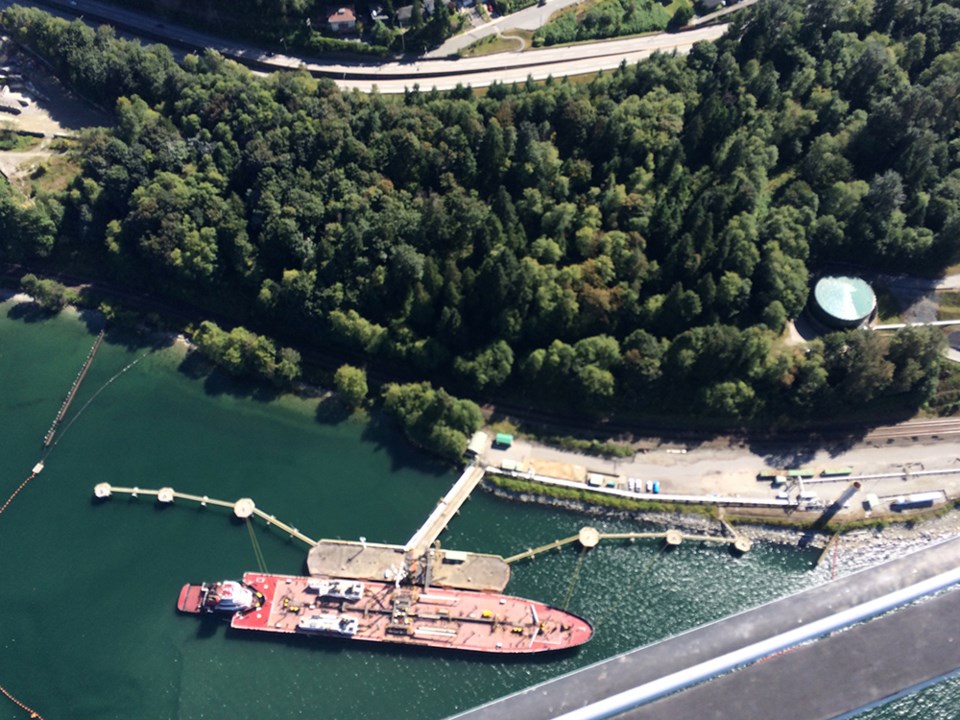Trans Mountain has filed replacement evidence with the National Energy Board – exactly six weeks after the NEB announced it would remove evidence from the hearing records made by the board’s most recent appointee, Steven Kelly.
Kelly of IHS Inc. worked as Kinder Morgan’s main energy consultant and argued the expansion project would bring higher netbacks (or profits). His contribution to Trans Mountain’s application – made in December of 2013 – was about 64 pages out of the original 15,000-page document.
On July 28, the federal government announced Kelly had been appointed to a seven-year term on the board, effective Oct. 13. The three-person panel deliberating on Kinder Morgan’s file then decided to strike all Kelly-related evidence.
The new evidence, an 89-page report titled “Market Prospects & Benefits of the Trans Mountain Expansion Project,” was prepared by Muse Stancil, a Texas-based energy consulting company.
“We are pleased with the analysis and results of the new report,” said Ian Anderson, president of Kinder Morgan Canada, in a press release.
But the City of Burnaby’s lawyer Greg McDade told the NOW the report has “some pretty significant flaws.”
“They just flip flop back and forth,” he said, adding he didn’t want to say much more given the city is currently looking over the new submission.
Intervenors have until Oct. 20 to submit information requests based on the new data, while commenters have until Dec. 14. Trans Mountain, meanwhile, will present their case to the NEB in Calgary on Dec. 17. A location for the intervenors to present their final arguments, however, has not been determined. It was originally scheduled to take place this month at the Delta Burnaby Hotel and Conference Centre.
“We’re looking into options of where to hold the hearing,” said NEB spokesperson Tara O’Donovan. “When you are trying to book a facility with only three or fourth months’ notice, it’s much harder than when you’re planning a year out.”
O’Donovan added Burnaby is being considered as a possible host.
The NEB also announced last week the deadline for a decision on the pipeline has been extended by four months to allow the NEB and intervenors time to review and test the new evidence. Previously, a report outlining whether the expansion project should go ahead was to be released Jan. 26, 2016. The date is now May 20, 2016.
“It just drags this out for another four months, which is unfortunate,” McDade said. “I think the real issue is what it does to the credibility of the panel and the process. They’ve just completely mishandled this.”
Even though the city will be submitting new information requests, the NEB process is still broken, he added.
“There’s no way, regardless of the result, that it has any credibility at the end. The other parties who suggest they need to fix the process are probably right because from a legal perspective, this has just been butchered. It’s a misnomer to call it a public hearing. It’s not,” he said. “The information request process has been a joke so far because you ask the questions in good faith. The company then has their lawyer write answers that are non-answers, and then the National Energy Board says those are fine.”
As for whether or not the new timelines will impact the project, Kinder Morgan spokesperson Ali Hounsell couldn’t say.
“We’re not certain yet. We’re looking at what the implications could be, and that could take us a little bit of time,” she told the NOW.
Kinder Morgan has construction scheduled to start in 2016, with the pipeline to be in service by 2018.
The $5.4-billion project, if approved, would see the Trans Mountain pipeline system twinned all the way from Alberta to Burnaby, with capacity increasing from 300,000 barrels of oil per day to 890,000.



